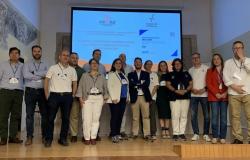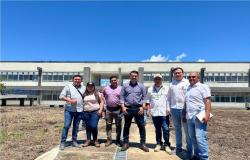Post date: 2024-06-04 04:43:31
Rural women, youth, and indigenous communities benefit from the delivery of cocoa seedlings of high-yield varieties, within the framework of a project worth more than $4.7 billion promoted by the department’s Ministry of Agriculture and Mining.
2024-06-04 04:43:31
Huila is one of the 5 strategic departments in the supply of food for the capital of the country, and thanks to the dedicated and committed work of peasant families, today it stands out nationally in the production of coffee, fish farming, beans, rice, and Its cocoa is recognized as having a fine flavor and aroma.
That is why efforts are being articulated by the departmental government to continue strengthening the agricultural sector, not only in improving production but also in the transformation of raw materials that contribute to value addition, in turn improving income for all links in the sector. chain, especially the primary producer.
With this purpose, a project is being developed for the production and delivery of 2,000,000 cocoa seedlings to cocoa-growing families, and producer associations in 23 municipalities of Huila, with the objective of improving the production of cocoa beans, through replanting, and new plantings.
Thanks to this project promoted by the Secretariat of Agriculture and Mining of Huila, and financed with resources from the General Royalties System in the order of $4,743,300,000, more than 700,000 cocoa seedlings have been delivered to date, with high-quality clones. production, adaptability, and good organoleptic characteristics, impacting young people, women, and indigenous populations.
Social inclusion initiatives
These inclusion processes allow for great appropriation by the beneficiaries of the project, contributing in turn to the generational connection so necessary for this productive sector in the department of Huila, and occupying the low marginal areas left by coffee growing and others. unproductive lands, with a crop that is recognized as a productive agroforestry system.
Thanks to this impulse, initiatives stand out such as those of the Cocoagro organization of the municipality of Palermo, made up mostly (90%) of women, who are committed to improving the quality of cocoa by establishing a farm with high-yield clones, the opening of a cocoa sale, and the start-up of a processing plant, where the quality of the product can be standardized.
Another of the outstanding initiatives is the one led by indigenous peoples, such as the Paniquita reservation in the municipality of Neiva, and the Páez Baché reservation in the municipality of Palermo, who seek a contribution to the food security process in cocoa cultivation.
of their communities, an alternative for economic income, and a productive activity that helps strengthen the ties of coexistence within organizations.
The project also allows expanding the cultivation areas in municipalities that have not historically been recognized as main producers, but whose agro-climatic conditions are suitable for the successful development of cocoa farming, which in the future will be reflected in the levels of production and quality. of cocoa beans, as is the case of Santa María, where in addition to coffee, technical beans, and sugar cane, today they want to invest in the cultivation of cocoa.






